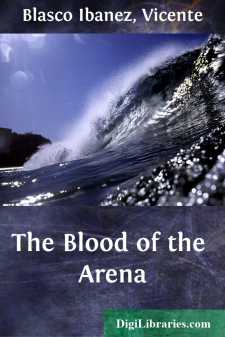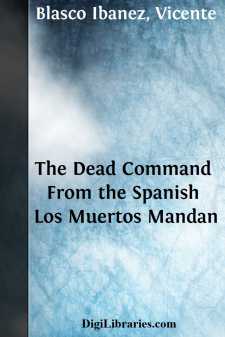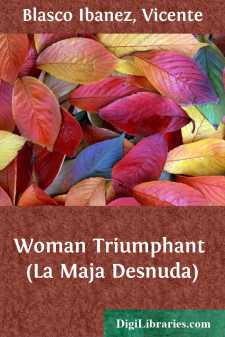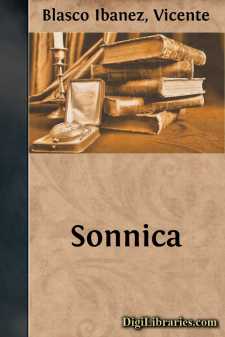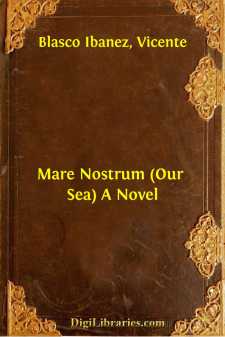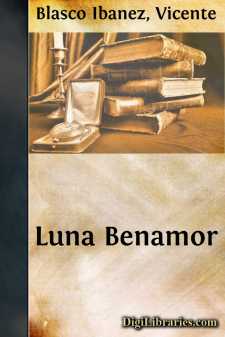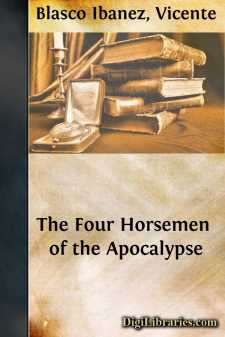Categories
- Antiques & Collectibles 13
- Architecture 36
- Art 48
- Bibles 22
- Biography & Autobiography 813
- Body, Mind & Spirit 142
- Business & Economics 28
- Children's Books 17
- Children's Fiction 14
- Computers 4
- Cooking 94
- Crafts & Hobbies 4
- Drama 346
- Education 46
- Family & Relationships 57
- Fiction 11829
- Games 19
- Gardening 17
- Health & Fitness 34
- History 1377
- House & Home 1
- Humor 147
- Juvenile Fiction 1873
- Juvenile Nonfiction 202
- Language Arts & Disciplines 88
- Law 16
- Literary Collections 686
- Literary Criticism 179
- Mathematics 13
- Medical 41
- Music 40
- Nature 179
- Non-Classifiable 1768
- Performing Arts 7
- Periodicals 1453
- Philosophy 64
- Photography 2
- Poetry 896
- Political Science 203
- Psychology 42
- Reference 154
- Religion 513
- Science 126
- Self-Help 84
- Social Science 81
- Sports & Recreation 34
- Study Aids 3
- Technology & Engineering 59
- Transportation 23
- Travel 463
- True Crime 29
Vicente Blasco Ibanez
Vicente Blasco Ibáñez was a prominent Spanish writer, journalist, and politician, best known for his vivid novels depicting the social and political landscapes of early 20th-century Spain. His most famous works include "The Four Horsemen of the Apocalypse" and "Blood and Sand," which gained international acclaim and were adapted into successful films. Blasco Ibáñez's writing is characterized by its strong narrative style and deep exploration of themes such as love, war, and the human condition.
Author's Books:
Sort by:
CHAPTER I THE HERO AND THE PUBLIC JUAN GALLARDO breakfasted early, as he did whenever there was to be a bull-fight. A slice of roast meat was his only dish. Wine he did not even touch; the bottle remained unopened before him. He must keep himself calm. He drank two cups of thick, black coffee, and lighted an enormous cigar, sitting with his elbows on the table and his chin in his hands, looking with...
more...
A MAJORCAN PALACE Jaime Febrer arose at nine o'clock. Old Antonia, the faithful servant who cherished the memory of the past glories of the family, and who had attended upon Jaime from the day of his birth, had been bustling about the room since eight o'clock in the hope of awakening him. As the light filtering through the transom of a broad window seemed too dim, she flung open the...
more...
PART I I It was eleven o'clock in the morning when Mariano Renovales reached the Museo del Prado. Several years had passed since the famous painter had entered it. The dead did not attract him; very interesting they were, very worthy of respect, under the glorious shroud of the centuries, but art was moving along new paths and he could not study there under the false glare of the skylights, where...
more...
CHAPTER I AT APHRODITE'S TEMPLE. When the ship of Polyanthus, the Saguntine pilot, arrived off the port of his native land, the mariners and fishermen, their vision sharpened by ever watching the distant horizon, had already recognized his saffron-dyed sail and the image of Victory, which, with extended wings, and holding a crown in her right hand, stretched along the prow until it dipped its feet...
more...
CHAPTER I CAPTAIN ULYSSES FERRAGUT His first gallantries were with an empress. He was ten years old, and the empress six hundred. His father, Don Esteban Ferragut—third quota of the College of Notaries—had always had a great admiration for the things of the past. He lived near the cathedral, and on Sundays and holy days, instead of following the faithful to witness the pompous ceremonials presided...
more...
THE WIDOW'S TAVERN The morning of that day—it was a Tuesday of the Lenten season—could not have dawned more promisingly. The sea, off the Cabañal, was in flat calm, as smooth as a polished mirror. Not the slightest ripple broke the shimmering triangular wake that the sun sent shoreward over the lifeless surface of the water. The fishing fleet had headed, bright and early, for the grounds off...
more...
I "Your friends are waiting for you at the Club. They saw you for a moment only, this morning; they'll be wanting to hear all your stories about life in Madrid." Doña Bernarda fixed upon the young deputy a pair of deep, scrutinizing, severely maternal eyes that recalled to Rafael all the roguish anxieties of his childhood. "Are you going directly to the Club?..." she added....
more...
LUIS AGUIRRE had been living in Gibraltar for about a month. He had arrived with the intention of sailing at once upon a vessel bound for Oceanica, where he was to assume his post as a consul to Australia. It was the first important voyage of his diplomatic career. Up to that time he had served in Madrid, in the offices of the Ministry, or in various consulates of southern France, elegant summery...
more...
CHAPTER I The dawn was just rising when Gabriel Luna arrived in front of the Cathedral, but in the narrow street of Toledo it was still night. The silvery morning light that had scarcely begun to touch the eaves and roofs, spread out more freely in the little Piazza del Ayuntamiento, bringing out of the shadows the ugly front of the Archbishop's Palace, and the towers of the municipal buildings...
more...
CHAPTER I THE TRYST (In the Garden of the Chapelle Expiatoire) They were to have met in the garden of the Chapelle Expiatoire at five o'clock in the afternoon, but Julio Desnoyers with the impatience of a lover who hopes to advance the moment of meeting by presenting himself before the appointed time, arrived an half hour earlier. The change of the seasons was at this time greatly confused in his...
more...


